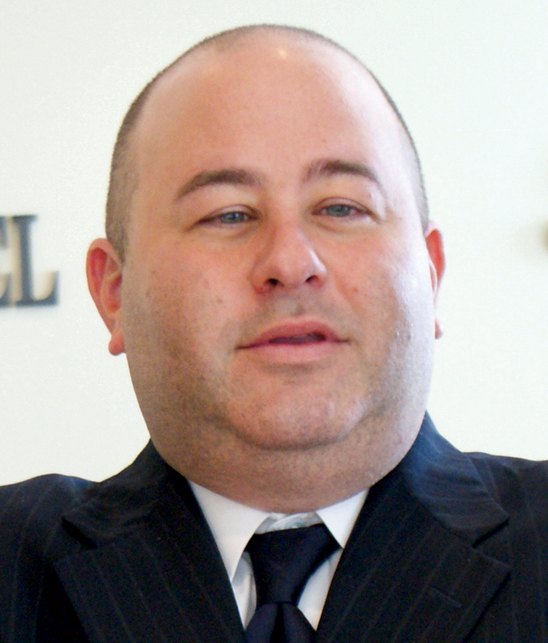Broker protocol: Indecision over recruiting agreement is rampant
Ruckus over recruiting agreement has even wirehouse lifers wondering if it's time.
When Morgan Stanley exited an industry agreement late last year that makes it easier for brokers and advisers to move to new firms, it upended 14 years of peace among the largest brokerages.
Thousands of retail brokers and wealth management advisers across Wall Street are left wondering whether they will one day fight with their employers over the right to do business with their clients if they jump from one broker-dealer to another.
“Advisers’ concerns about leaving on Friday and getting sued on Monday are valid,” said Dennis Gallant, a securities industry consultant. “Advisers don’t want to fight over clients. Many are thinking that even if their firm hasn’t left protocol yet, if it does in the future, they don’t want to work there. Some wirehouse lifers are looking and thinking outside the box.”
Morgan Stanley’s move, and subsequent decisions by other competitors to follow suit, has made brokers uneasy about their future. And brokers aren’t the only ones grappling with how this broken accord alters the advice landscape.
(More: UBS exits protocol for broker recruiting)
Firms that employ brokers are rethinking strategies around recruiting, RIAs are trying to position themselves to benefit if a breakaway boon erupts, and regulators are circling. They’re watching closely for any potential harm to customers. Clients, all the while, are mostly clueless about the upheaval, even though they may eventually bear the largest brunt.
“It seems that getting out of the protocol is causing chaos for brokers, but the biggest losers are the customers,” said Jeff Liddle, founding partner of Liddle & Robinson, a securities law firm. “It goes back to the argument that it’s the firm that owns the customer relationship.”
Profound questions loom.
WILL THE LEGAL BATTLES OVER CLIENTS RESUME?
Before the Protocol for Broker Recruiting was put in place in 2004, large national firms would routinely sue advisers and each other when brokers were recruited and left one broker-dealer to work at another. Firms filed temporary restraining orders and froze client assets during the litigation, hoping to persuade some of the advisers’ clients to stay.
So far Morgan Stanley, which left the agreement to try to stanch the bleeding of advisers controlling valuable client assets, has not shied away from taking legal action against advisers who look for greener pastures.
“With our exit from the protocol, advisers are subject to the terms of any applicable client non-solicitation restrictions and/or confidentiality obligations, including restrictions on removing client-related information,” a Morgan Stanley email sent to advisers almost four months ago said. “The provisions of the protocol that permit advisers to take certain client data and solicit clients when transitioning from one protocol firm to another will no longer apply.”
As of mid-February, Morgan Stanley already had filed at least four temporary restraining orders in federal courts against former brokers.
Other big broker-dealers are watching it all closely.
UBS Wealth Management Americas, with about 6,000 advisers, and Citigroup Global Markets Inc., with close to 1,000, exited the agreement at the end of last year. They have not taken known legal action against their departing brokers to date.
(More: Morgan Stanley wins restraining order, but former broker can contact clients)
Advisers contemplating working at a new firm, meanwhile, are looking over their shoulders and dealing with the anxiety of lawsuits.
“Advisers are genuinely fearful when there is volatility and change,” said Brian Hamburger, CEO of MarketCounsel. “They want a simple ‘how to’ guide for every adviser that leaves a firm, but it’s not available.”
WILL ALL THE BIG FIRMS ABANDON THE PACT?
The retail financial advice industry has changed significantly since the protocol was created. Today’s remaining Wall Street wirehouses face greater competition for advisers from independent RIAs and broker-dealers because of improved technology and the fallout from the credit crisis, which wiped out many advisers’ deferred compensation packages in the form of company stock.
 “Advisers are genuinely fearful when there is volatility and change.” Brian Hamburger ceo marketcounsel
“Advisers are genuinely fearful when there is volatility and change.” Brian Hamburger ceo marketcounsel “The big firms in the protocol rightly believed they would recruit advisers on par with the number they would lose, and that’s the way it was for 10 to 15 years,” said Dennis Concilla, a partner at Carlile Patchen & Murphy, a law firm that operates a website that lists the protocol’s firms and is based in Ohio. “In Columbus, Ohio, in the last two months, $4 billion in assets have left the wirehouse to small RIAs. The trend is not for large brokers to leave a wirehouse and go to another wire.”
Advisers are leaving wirehouses to start their own investment advisory firms or join roll-ups, he said, referring to networks of RIAs that often pay cash or stock to advisers in return for ownership stakes in their businesses.
“Large firms are asking how are they going to recoup those assets, and they left protocol to make it more difficult for advisers,” Mr. Concilla said.
Morgan Stanley said it was pulling out of the protocol as part of its effort to reduce recruiting and emphasize training.
Merrill Lynch and Wells Fargo Advisors have said they will remain in the protocol, but many in the industry wonder whether both will eventually follow Morgan Stanley’s lead.
A few other large firms have recently said they will stay, including Raymond James Financial Inc. and Ameriprise Financial Inc., two firms with large independent broker-dealer units that have been successfully recruiting from the four wirehouses.
Such firms, like RIAs, can use their membership in the protocol to attract advisers keen on joining a firm that has protections in place should they seek to depart down the road.
WILL THIS STOP OR SPUR BREAKAWAY BROKERS?
There is no doubt that firms’ exit from the protocol will serve as a roadblock to advisers looking to move. But many contend that where advisers have the will, they will find a way to move to a new employer, even with the threat of lawsuits hanging over their heads.
In fact, Morgan Stanley’s decision to abandon the protocol could prompt more advisers to think about leaving, said Mr. Hamburger, whose firm acts as a consultant to advisers looking to become independent RIAs.
“When we look back at this in a few years, the appetite for advisers and clients to leave only increased when the prison gates were closed,” Mr. Hamburger said. “We’re hearing from more of these guys now than we have in the last few years. They want to know, what are the big firms afraid of and why are they ducking out of the protocol?”
Morgan Stanley advisers voted on the firm’s decision with their feet.
The company said in January it lost 47 brokers in the fourth quarter, the same period it clamped down on advisers leaving by backing out of the protocol. Although the loss was less than half of 1% of the firm’s sales force, it was the biggest decrease of the year.
“The adviser has the relationships, and from our point of view, there will be a continued migration to independence,” said Robert Moore, CEO of Cetera Financial Group Inc., a large network of independent broker-dealers. “We do not see firms leaving the protocol as a barrier to us attracting good advisers and providing them with better solutions.”
WILL REGULATORS JUMP INTO THE FRAY?
For an industry that loathes the interference of its regulators, Morgan Stanley’s decision may have spurred them to take action. There are rumblings that state or federal regulators could get involved if clients are hurt.
“I know some of the regulators are looking at it,” said Paul Reilly, CEO of Raymond James Financial, when asked about the protocol during a recent conference call.
Clients have a right to know where their adviser is and to choose their advisers, he said.
“I’m concerned. It’s a major shift,” said Joseph Borg, the Securities Commissioner of Alabama. “My message to the industry would be, ‘Look guys, if this breaks down, and you all want to sue each other and fight, do not involve the customer.’”
Account transfers need to be signed and done properly so clients have access to their funds, he said.
“But if you freeze the account, you are now controlling the customer’s assets,” said Mr. Borg. “Usually under the law, you call that ‘conversion,’ or taking control. We are concerned about that but right now don’t think it will go that far.”
Why was the protocol even created?
The broker protocol was the industry’s way to tamp down litigation and issues that emerged around privacy of client data. Merrill Lynch, UBS PaineWebber and Smith Barney were the founding signatories of the agreement, the Protocol for Broker Recruiting, in 2004. Morgan Stanley and Wachovia Securities (now Wells Fargo Advisors), the remaining wirehouse firms, followed in 2006.
Working under the protocol, firms agree that they will not enforce restrictive covenants, such as non-solicitation provisions in contracts, as long as the departing advisers take to their new employer very limited information about clients that the adviser personally serviced at the firm. They may leave with a client’s:
- Name
- Address
- Phone number
- Email address
- Account title
Currently, more than 1,700 firms operate under the rules of the protocol.
Learn more about reprints and licensing for this article.








